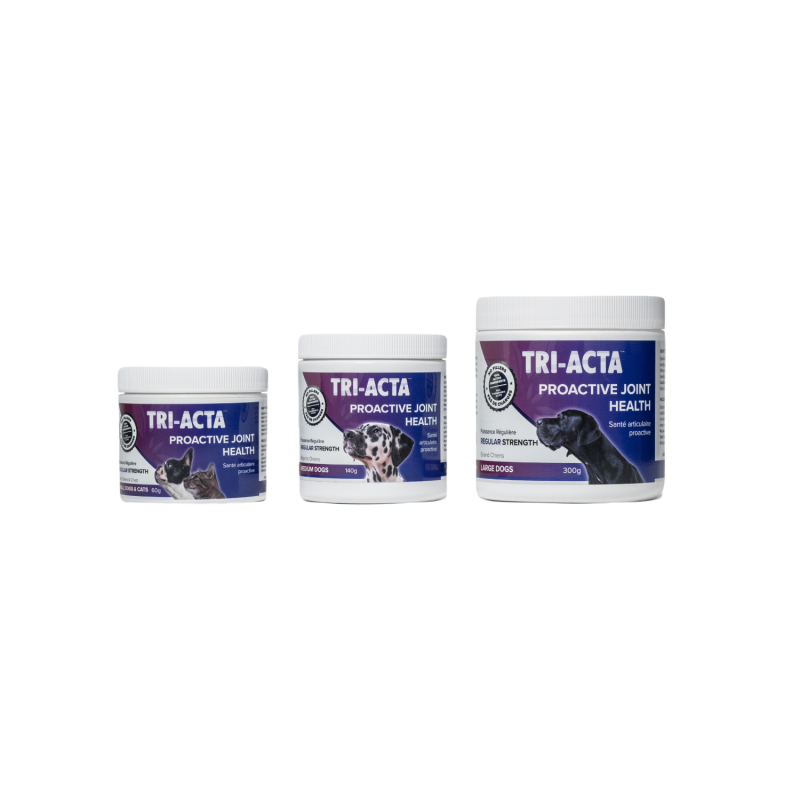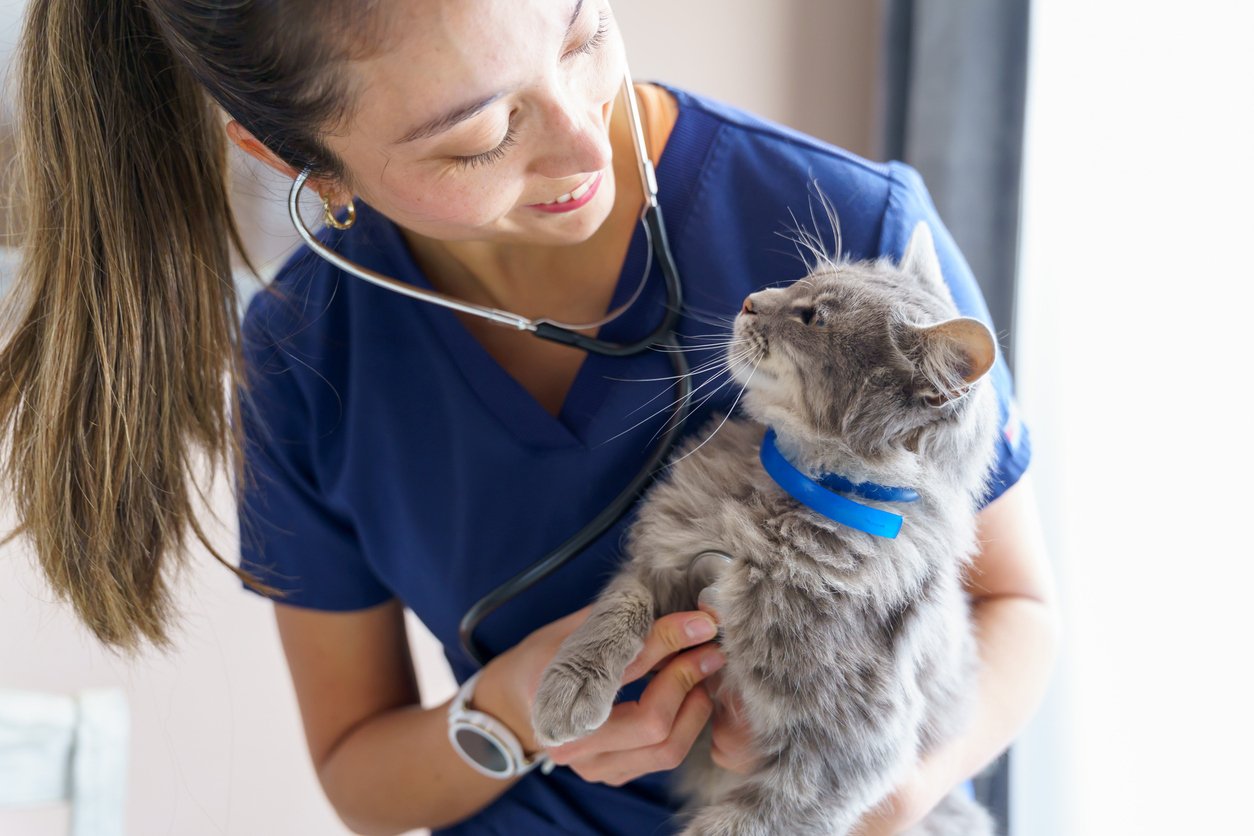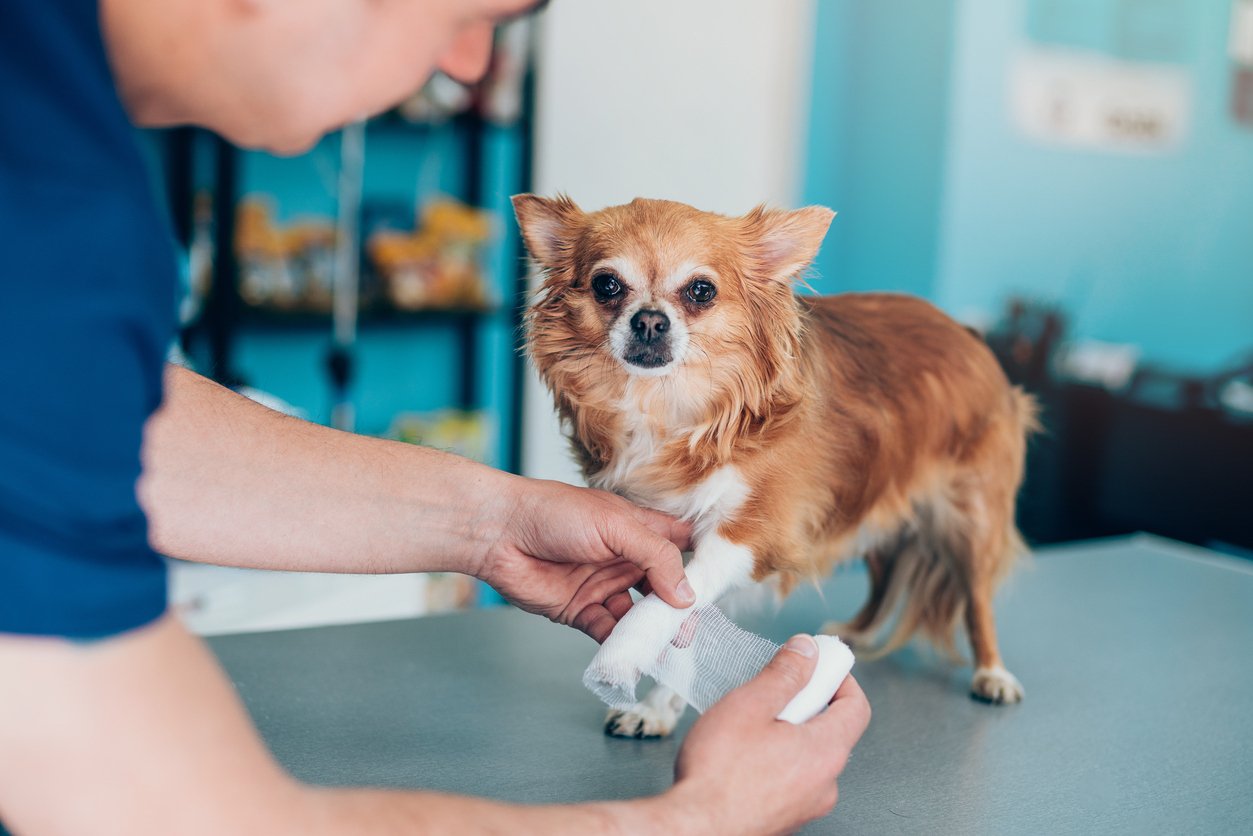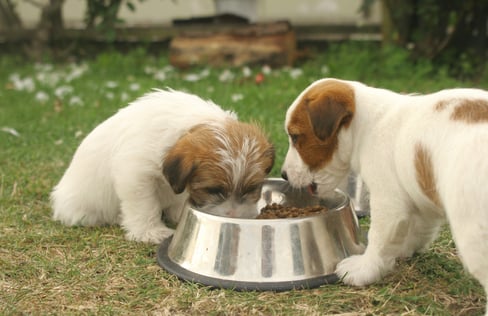Table of Contents
A puppy’s health is the concern of every loving pet pawrent and your pup's nutrition plays an important role in keeping them healthy. Understanding how to take care of a puppy includes understanding the nutritional requirements that a puppy needs to ensure you provide them with the right balance of proteins, carbohydrates, fats, vitamins, minerals, and other nutrients.
This article discusses puppy nutrition basics, including what to feed your puppy, a puppy nutrition chart, and nutritional recommendations. Additionally, we will discuss puppy feeding and nutrition requirements, as well as tips for choosing the best food for your pup.
Why is it Important to Understand Puppy Food Nutrition?
Nutrition plays a central role in the life of a puppy. Right from birth to when puppies transition into adulthood, a puppy requires a diet that will support their fast growth rate.
Here are some additional reasons why nutrition is important:
- Help develop strong immunity
- Prevent common puppy orthopedic diseases
- Help maintain healthy weight
Understanding puppy nutrition means knowing what type of food a puppy needs. When to feed them, and how much they should be fed per day. A puppy nutrition calculator can help you figure out the optimum amount of food for your pup.
Proper nutrition supports the development of healthy joints, skeleton, and other body systems. A puppy that is properly fed with the right type of diet grows into a strong, healthy, and happy adult.
Puppy Nutrition Chart for Feeding
Establishing a feeding schedule is important for your little furry bud. Because dogs thrive on routine, creating one early in puppyhood helps establish feeding discipline. In addition, it ensures your puppy is getting their meals on time, reducing hunger-related anxiety.
A puppy feeding chart is a guideline that can help you determine how much food to give your puppy as they progress through puppyhood for healthy optimal growth.
The information on the feeding chart above is mainly for kibble or dry puppy food. It is important to consult more detailed instructions from the food packaging and follow your vet's advice.
Puppy Nutrition Requirements
A puppy’s diet should obviously include all the nutrients he needs to be healthy and grow properly, but a healthy puppy diet also includes portion control. Let’s start by going through the nutrients that you should ensure your puppy’s food contains.
The main nutritional components of puppy food include:
- Proteins
- Fat
- Minerals and Vitamins
- Carbohydrates
- Antioxidants
Protein
The ASPCA dog nutrition guidelines recommend that a puppy’s diet contain 25-30% protein. Proteins are the building blocks of the body. Your puppy needs to consume adequate amounts to help them grow properly.
While there is an unending debate about whether dogs are carnivores or omnivores, one thing is clear: dogs need to eat a balanced diet. That means they benefit from a diet that includes all nutrition classes, from fruits, veggies, animal proteins, and plant-based proteins as well.
Both plant and animal-based protein sources are important for a growing puppy. However, not all protein is equal. For a dog's nutrition to be complete, it has to contain high protein sources. Proteins are made up of 20 amino acids classified as essential and non-essential.
Essential amino acids are those your dog’s body cannot synthesize and must be supplied directly through the diet. Non-essential amino acids, on the other hand, are the other half of amino acids that a dog’s body can make from a balanced diet.
It is common for doggy-parents to add some raw meat protein sources to their puppy’s diet to increase the protein content. Though some pet parents have reservations about raw meat feeding for puppies, a raw food diet for dogs can provide an excellent source of high-quality protein for your pup.
Proteins are hyped for a reason. They play key roles in your dog’s body including:
- Helping to build and repair body tissues like muscles, skin cells, nails, etc
- Promoting normal body function by supporting the production of hormones and enzymes
- For energy synthesis which happens when the proteins are broken down into ketones and glucose. Both can be used to provide energy when reserves of fats and carbohydrates are low
Every puppy is special and unique. And so are their protein requirements. That being said, general protein requirements for a puppy depend on several factors:
- Age. Much younger puppies require more protein in their daily diet
- Breed. Large breed puppies need more energy and protein content than small and medium breed puppies
- Level of activity. The more active and playful your puppy is, the more protein they need
- Health status. A sickly or recovering puppy tends to need more protein content in their food to help them with recovery.
Animal vs. Plant-based Protein Sources
The breadth and variety of vegan options for humans have increased over the years. Vegan options have also expanded to the pet food industry. The chart below compares the efficacy of animal protein versus plant-based protein.
|
Animal Protein |
Plant-based Protein |
|
Considered to be a ‘complete’ protein source containing all essential amino acids |
Considered ‘incomplete’ as they lack one or two essential amino acids |
|
Easier to digest for puppies |
Can be harder for puppies to digest |
|
Easier to absorb because of higher bioavailability |
Bioavailability is slightly lower |
|
Contains more fat content which is considered good for puppy health |
Has less fat content and may be best for puppies susceptible to excess weight gain |
|
Can cause allergic reactions in some puppies |
Provide hypoallergenic sources of protein except for soy which is a common allergen for dogs |
Fat
A puppy’s diet is not complete without healthy fats. Fats are critical in the development and overall health status of a puppy. Fats facilitate the absorption of fat-soluble vitamins like vitamins A, D, E, and K. Fats also support healthy coats and skin, provide energy, and promote brain and cognitive development.
Good sources of fat for puppies include fish like tuna and salmon. Puppies can also benefit from plant-based fat like flax seed oil.
Minerals and Vitamins
Puppy nutrition should also contain healthy portions of minerals and vitamins. Consumed in the right proportions, vitamins and minerals help keep your puppy healthy by supporting physiological processes and maintaining a healthy skeletal structure.
Let’s take a closer look at more benefits and sources of vital minerals and vitamins:
|
Description |
Minerals |
Vitamins |
|
Functions |
|
|
|
Sources |
|
|
|
Examples |
Magnesium,copper, manganese, iodine, Calcium, zinc, phosphorous |
Vitamin A, B, C, D, K |
Carbohydrates
Puppies are rambunctious and need carbohydrates to support their high energy as they grow.
Good sources of quality carbohydrates include whole grains like barley, oatmeal, and brown rice. Puppies can also get carbohydrates from fruits and vegetables like berries, sweet potatoes, and peas. Be sure to steer clear of highly processed carbohydrates when you can, though, as they can be detrimental to your puppy's health by contributing to obesity and other conditions.
Antioxidants
Antioxidants in dog food are an integral part of maintaining a healthy immune system. This is because a puppy’s immune system is still developing and can benefit from a boost of antioxidants like vitamins C, E, beta carotene, and selenium.
An easy way to incorporate antioxidants in your puppy’s diet is by finding puppy food fortified with antioxidants or by incorporating sources of antioxidants slowly into your puppy’s diet to measure their tolerance:
- Blueberries, blackberries, raspberries, or strawberries
- Cooked yellow squash, carrots, or sweet potatoes
- Cooked broccoli, spinach, kale, or green beans
- Tomatoes and mangoes (in moderation as these can cause diarrhea)
- Supplements that contain MSM
Factors to Consider for Puppy Feeding and Nutrition
There are different approaches and opinions on how to feed your pup properly. This includes when you should feed your pup, what you should feed him, how many calories they need, and more. Let’s explore these different factors in more detail.
Free and Controlled Feeding
Finding the right feeding method that suits your puppy is vital in establishing a healthy nutritional regimen for your pup. Free feeding means providing a bowl of food for your pup to munch on throughout the day, while controlled feeding means that food is provided according to scheduled meal times.
Thus the pros and cons of free vs. controlled feeding can sway your choice of feeding method as per your convenience and your pups’ best interest.
Free Feeding
|
Pros |
Cons |
|
Reduces food-related aggression. Your puppy knows food is always available thus less desire to aggressively guard it |
Puppies who can’t self-regulate can eat more than necessary leading to over-eating |
|
Convenient for pet parents who are away all day |
Kibble left out for long hours can go stale |
|
Puppy can eat to their fill. They don’t have to suffer hunger pangs in-between meals |
You cannot serve food that needs refrigeration after opening |
|
Overly active puppies can eat to their fill for extra calorie needs |
Can derail after-meal potty training efforts when food is always available |
|
Can help puppies self-regulate their eating and reduce instances of overeating |
Availability of food can make food-related training more challenging. This is because food looses its motivating allure |
|
Puppies can eat at ease without scrambling for food. This reduces chances of conditions like bloat in dogs |
Controlled Feeding
|
Pros |
Cons |
|
Creates a reliable feeding routine for your puppy |
You must be present to feed your puppy |
|
Can help regulate amount of food consumed and reduce chances of overeating |
Might pressure a puppy to eat even when they are not hungry |
|
Helps pet parents keep track of feeding habits and can help keep an eye on feeding difficulties |
Your puppy can develop food-guarding tendencies when food is served only on restricted time. Especially when the bowl is taken away and they are not full |
|
You can serve fresh food at each meal time |
|
|
Helps develop eating discipline and good behavior. Your puppy learns to respond to your commands to ‘come’, ‘sit’ or ‘wait’ as you prepare their ,meals |
|
|
Can help with training. Using food items and treats can be a big motivator for puppies in training |
Quality of Ingredients
Choosing a puppy food with whole-food ingredients is your best bet to ensure that your pup is eating high-quality food. Whole food ingredients are minimally processed, meaning that the nutritional value that they provide is maximized compared to processed ingredients like meat by-products and meals.
Daily Calorie Intake
The sweet spot for calories per day intake for your puppy is the right amount to support their energy requirements but not too much to encourage rapid weight gain. Puppies are as unique as they come. And that is why it is important to chart your puppy’s weight gain and growth progress to determine the right amount to feed your pup, as well as the feeding recommendations listed on the specific food you buy.
Puppy Treats
Giving your pup treats is a great way to reward good behavior and reinforce skills during training. However, they should be given in moderation. Remember treats contribute to the overall daily calorie intake for your pup. Uncontrolled treat feeding can lead to excess calorie consumption resulting in obesity and other weight-related health problems.
So don't let the begging and puppy eyes guilt trip you into giving more treats than necessary!
Keeping Puppies Fit
Exercise has many benefits for your dog and should be a regular part of your pups’ daily routine. Benefits of exercise include:
- Helps maintain a healthy and strong cardiovascular system
- Helps digestion and encourages your doggo to poop and urinate regularly
- Physically and mentally stimulates your pup
- Helps build strong muscles and bones
- Reduces behavioral problems like biting and digging
Feeding Routine
Establishing a puppy feeding routine early on in your pup’s life is important. This involves feeding your doggy at the same place, same time, and using the same bowls. It helps your puppy know when and where to expect food.
Remember to maintain hygiene around the feeding area, especially if you are offering your puppy a raw diet. Proper food safely can prevent contamination which can make your puppy sick.
Oral Hygiene
It is important to keep dog teeth clean. Oral hygiene is vital for puppies and adult dogs alike. A good oral hygiene routine for your puppy will help prevent:
- Periodontal diseases
- Bad breath
- Tooth loss
- Gum and tooth pain
When your pup has healthy gum and teeth, they can be able to enjoy a variety of food and help maintain a healthy body status.
Recommended Puppy Nutrition Food Options
Puppy food comes in all shapes, flavors, and textures. While it is important to find high-quality puppy food for your munchkin, it may take some trial and error before finding the perfect brand that your puppy will love.
At the beginning of their solid food journey, a puppy may enjoy playing with their food more than they do eating it. But just like human babies, play is their initial way of interacting with food as they learn to eat and enjoy solid meals. So be patient as your little furball learns its way around the world of solid food. You can encourage them to engage with their food more by establishing a feeding routine.
Most puppy diets consist of kibble or dry food, wet food, raw food, or a combination of any of these food choices depending on the puppy breed as well as their health status. Some puppies may be on a special veterinary-prescribed diet.
Let's have a closer look at these food options, their pros and cons, and what makes them suitable for your puppy.
Dry Food / Kibble
When it comes to puppy food nutrition, good quality kibble provides a wholesome, balanced food by incorporating all the important nutrients for a growing puppy.
Kibble is made up of a protein source–often more than one–some form of grain, a vegetable, and fortified with vitamins and minerals. The mixture is then dried and made into small pellets that are packaged and marketed as dry puppy food.
The quality of puppy food can be determined by the amount of and type of protein, fiber, fats, and moisture present. This is often done by calculating the dry matter basis.
|
Pros |
Cons |
|
Easy to store and transport |
Some dry food brands may contain fillers and artificial additives, which are not healthy |
|
Long shelf life |
Food making and packaging process can reduce nutrient content or potency of some ingredients. For example, food fortified with glucosamine may not have all of the benefit that glucosamine has to offer |
|
Convenient for free-feeding puppies |
Puppies with dental health challenges may find it hard to chew on kibble |
|
Can promote dental health by removing plaque and tartar from teeth as puppies chew on it |
It can be too dry for puppies who do not take adequate water |
|
Considered to be more affordable compared to other types of puppy food |
|
|
Doesn't need refrigeration once opened |
|
|
Great for puzzle feeders, toys and training |
The calorie content for kibble is brand specific. On average, though, kibble can contain between 300-400 calories per serving or per cup. When it comes to puppy food calories, you won’t always see the calories listed on the food. Instead, it will simply list the amount you should feed. Calories are typically listed on food meant for weight management. When a calories listing does appear, it’s usually stated as “Kilocalories per Kg of food,” “calories per cup,” or “per unit” of food. When deciding how many calories to feed your dog, you need to consider your pup’s size, metabolism, and energy expenditure (e.g., if your puppy is a working dog, it would need more calories compared to a housebound dog). In general, puppies need more calories compared to adult dogs.
Wet Puppy Food
Wet puppy food comes in cans or puppy food pouches. It contains the highest amount of moisture compared to other forms of puppy food. It is a favorite of pet parents who are weaning their puppies off nursing or alternative milk options for puppies. Wet food is considered easier for puppies to chew, and it also contains higher quantities of protein and fat.
|
Pros |
Cons |
|
Easier for sickly puppies to eat or for puppies with dental health issues |
Needs refrigeration once opened |
|
More tasty and palatable |
Often costlier than kibble |
|
Help keep puppy hydrated due to high moisture content |
Can easily stick to teeth and cause dental problems in the absence of oral hygiene |
|
Contains fewer carbohydrates which can be harder for puppies to digest |
|
|
Good for puppies with larger-than-life appetites. Easily satiates hungry puppies due to high moisture content |
|
|
Made with higher quality ingredients thus more nutritious |
On average, wet puppy food contains between 200-300 calories per 12-ounce can. Exact calorie count numbers can be found on the food packaging together with feeding guidelines.
Wet puppy food can be served as stand-alone meals or as a top-up on kibble to help make it easier to eat. Puppies with oral challenges or deformities can easily consume wet food. It is also tastier for puppies and typically pleases even the finickiest of eaters since wet food tends to retain a more natural-tasting flavor of the ingredients.
Raw Puppy Food
Raw meat puppy food is meant to mimic a dog’s natural diet in the wild. According to the American kennel club, fresh raw food consists of raw meats, eggs, organs, whole or ground bones, muscle meats, dairy products like plain yogurt, and dog-approved fruits and veggies.
The support for a raw diet for dogs diets cites healthier pups, better digestion, healthy skin and coat as well as better dental health.
|
Pros |
Cons |
|
Easier to digest |
Requires high sanitary levels for preparation and serving |
|
Improved stool consistency |
Can be potentially hazardous for your puppy if contaminated |
|
Provides higher energy |
Quality raw meat can be costlier than other food types |
|
Natural tasting and more palatable |
May require special handling and storage |
|
Promotes better dental health |
|
|
Contains no filler ingredients or artificial additives |
The calorie content of raw food can be tricky to estimate as it often depends on the quality of ingredients and recipe used. However, raw food diets can help meet puppy food nutrition requirements because of the high protein and nutrient levels of fresh raw ingredients.
For puppies suffering from allergies and dog gut health issues, a raw food diet can be beneficial because it is filler and additive-free. Though some professionals may argue that puppies are better off with cooked meals.
Proactive Care for Puppies

There are several things you can do to help your puppy along with providing proper puppy food nutrition.
Supplements
While a balanced diet is vital in maintaining proper puppy health, supplements can be added to help bridge any nutritional gaps. In addition, supplements like joint, gut, and antioxidant supplements are great at promoting the overall health of your puppy.
For example, TRI-ACTA for pets is a joint supplement that is great for puppies. It contains 100% active ingredients like MSM, chondroitin sulfate, and glucosamine (glucosamine sulfate and glucosamine HCL) which deliver therapeutic effects in maintaining overall joint health and supporting mobility. The benefits of glucosamine for dogs cannot be ignored, and TRI-ACTA combines the goodness of both types of glucosamine to ensure that your puppy gets the best of joint support.
In addition, TRI-ACTA can be used as a proactive measure to help large puppy breeds susceptible to conditions like hip dysplasia.
What is even better about TRI-ACTA is the fact that it contains no fillers. That means every ounce of supplement is packed with potent goodness to give your puppy the very best of joint health support. And not forgetting the value for money that you get, your puppy wins, and you win too–yay!
TRI-ACTA for Pets
A proactive approach for developing and younger adult pets to maintain optimal joint health mobility, minimize inflammation and fend off age-related ailments.

Shots
You probably don't like getting shots, nobody does–that goes for your puppy too. But puppy shots for the first year of your munchkin’s life are important. Vaccines help keep your puppy protected from potentially fatal sicknesses and infections.
There are several kinds of shots that your puppy will need over the first 12-18 months depending on the breed. It is important to ensure that you follow through with each one. Your vet will guide you on which vaccines are necessary for your puppy, depending on the breed, place of residence, and other risk factors that might be unique to your puppy.
Do remember that shots are an added expense and will play into the average cost of owning a puppy in that crucial first year.
Training
Gentle puppy training is an important part of helping your puppy learn many useful skills as they grow. It is not only essential to instill good behavior but it helps your puppy learn how to socialize with other dogs, keeps them occupied, and helps develop a bond and language of communication with you.
It might sound like a lot of work initially, but with the help of technology, you can even find online dog training programs that would be perfect for your schedule.
Safe puppy toys
Play is part of every puppy’s life. It is vital to support puppy play with fun but safe toys that they can enjoy. Puppy toys can help in training your pup, particularly those that dispense treats. They can also help satiate your puppy’s innate biting instinct, especially when they start teething.
As goes for everything concerning your puppy, always be sure that you get good quality toys that are both size and age-appropriate for your pup.
Conclusion

A healthy happy pup is the joy of every pet parent and learning how to take care of a puppy is a journey. Keeping your puppy healthy takes a deliberate effort to ensure that you feed them a complete and well-balanced diet. While diet plays a key role in your puppy’s health, remember to include other equally important aspects such as exercise, supplements, and fun time.
Every aspect of a pup's life will directly or indirectly impact its physical and mental well-being. So get them into a working routine for both of you so that you can enjoy each others’ company in a way that promotes a stronger bond.
Find the best quality food you can afford for your pup whether it is kibble, wet, or raw puppy food. Ensure that the type of food you pick matches your puppy’s dietary needs.
It is also possible to create unique food recipes for your pup if you have the time and resources. But always with your vet's input to ensure the diet is balanced and complete. They will give you proper puppy nutrition guidelines that will help you sustain a healthy meal program.
And remember to provide lots of fresh water accessible to your doggo at all times. It is important for a puppy to drink enough water throughout the day. Also, be sure to boost your pup’s health by adding a joint supplement like TRI-ACTA into their daily meal regimen. You will be glad you did when you see your puppy grow into a strong and active adult.
TRI-ACTA for Pets
A proactive approach for developing and younger adult pets to maintain optimal joint health mobility, minimize inflammation and fend off age-related ailments.

Hey, got any questions or comments? Feel free to contact us. We would love to help! And don't forget to browse our resources for dogs page for more fun content on how to care for your four-legged pals.
Newsletter Signup
Subscribe to our newsletter to receive the latest news and exclusive offers.
.jpg?height=2000&name=Cliick_Integricare-DISPLAY-REVISEDV2%20(1).jpg)
Proactive & Therapeutic Joint Supplements
When given daily, Integricare joint supplements recover bone and joint injuries faster and help prevent mobility injuries from happening in the first place.









